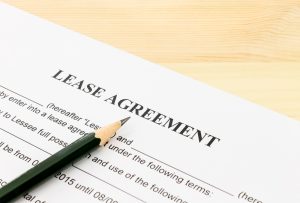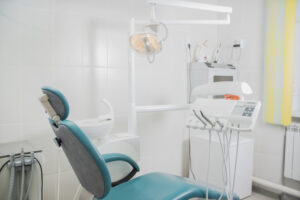The dental attorneys at Nardone Limited in Columbus, Ohio frequently negotiate lease terms on behalf of dental clients. When purchasing a dental practice, there are a number of reasons a buying doctor may want to lease the dental office space instead of purchasing. For example, maybe the buying doctor just graduated from dental school with student debt and is concerned with incurring more debt by purchasing the property. Maybe the buying doctor cannot secure financing to purchase both the dental practice and the real estate. Or, maybe the selling doctor owns the real estate and wants a continuing source of rental income after selling his practice. Regardless of the reason for leasing, it is important not to treat the lease agreement as an afterthought. Negotiating a commercial lease is more than just agreeing on the rental rate and the term. Rather, when negotiating a lease for your new dental office, there some key provisions that you can include in the lease to better protect your investment in your practice.
Exclusivity or Competitive Use Restrictions
Assume the dental office you intend to lease is located in a multi-office building or health complex, or that the landlord owns other nearby commercial properties. If you have not successfully negotiated an exclusivity or competitive use restriction to include in the lease, you are exposing yourself to substantial risk that the landlord will lease that space to a competing dental practice. You can eliminate that risk by including a well-drafted exclusivity provision in your lease agreement. For instance, the provision could prohibit the landlord during the lease term from leasing any portion of the building—or any building owned by the landlord within a certain distance of the practice location—to any dentist or entity practicing dentistry, as that term is used and understood under Section 4715.01 of the Ohio Revised Code. The provision should also obligate the landlord to ensure that all new lease agreements include the restriction.
Term
In many instances, lenders will require that the lease term be at least as long as the repayment period for the practice acquisition loan, which is often ten years for dental practice purchases. Putting aside lender requirements, it is advisable for dentists to negotiate an initial term and renewal rights that offer the dentist flexibility. That is, the initial lease term should be long enough to protect your investment in the practice, but short enough to allow you to move the practice if necessary, without having to break the lease. For instance, if the neighborhood where your practice is located gradually undergoes an economic downturn over the first five years of a ten-year lease term, and your practice suffers as a result, you do not want to be locked-in to a lease agreement for another five years. Buying out the lease could be very costly. On the other hand, if you only negotiate a three-year initial term, and no renewal terms, you may lose your substantial investment in your practice when the landlord decides not to renew the lease. In many instances, a five-year initial term with two renewal options of five years each will offer the right balance of flexibility.
Use Restrictions
For the landlord’s protection, many commercial lease agreements will include a provision restricting your use of the leased premises. For instance, it is common in the dental industry for the landlord to require a use restriction prohibiting the tenant from using the space for any purpose other than the practice of general dentistry. A restriction like this, however, limits your options. What if an opportunity arises to bring an orthodontist or other specialist into the practice? The use restriction would technically preclude you from expanding your practice in this manner. In many instances, landlords are more than willing to be remove or alter their boilerplate use restrictions if requested.
Contact Nardone Limited
The dental attorneys at Nardone Limited have vast experience negotiating lease agreements on behalf of their dental clients. If you need guidance regarding a lease agreement for your dental practice office, contact Nardone Limited.

 Vince Nardone Discusses Employment Contracts with Ohio State Dental Students
Vince Nardone Discusses Employment Contracts with Ohio State Dental Students  Navigating the 2024 Landscape: Strategies and Considerations for Dental Support Organizations (DSOs)
Navigating the 2024 Landscape: Strategies and Considerations for Dental Support Organizations (DSOs)  Sellers of Dental Practices to DSOs need to have a Buyer’s Mentality Requiring Selectivity and a Well-Thought-Out, Decision-Making Process
Sellers of Dental Practices to DSOs need to have a Buyer’s Mentality Requiring Selectivity and a Well-Thought-Out, Decision-Making Process  Increasing Profitability by Minimizing Disruptions within Your Dental Practice
Increasing Profitability by Minimizing Disruptions within Your Dental Practice  As a Dentist, What Are My Obligations Related to Out-of-State Patients and Potential Prescription Drug Abuse?
As a Dentist, What Are My Obligations Related to Out-of-State Patients and Potential Prescription Drug Abuse?